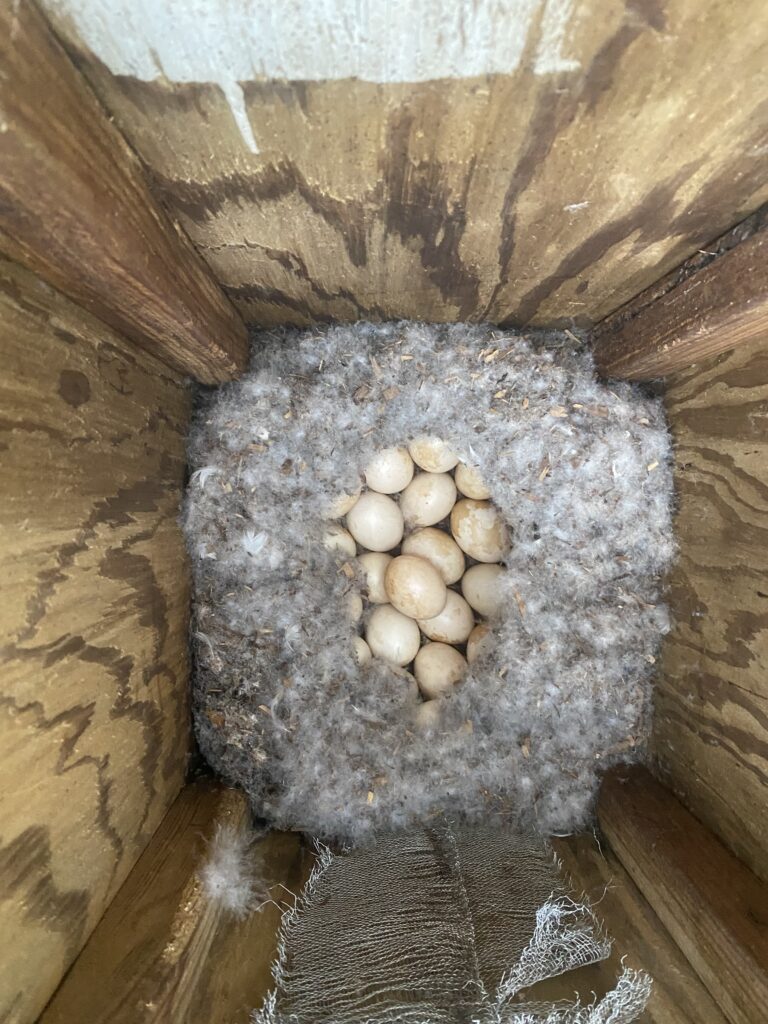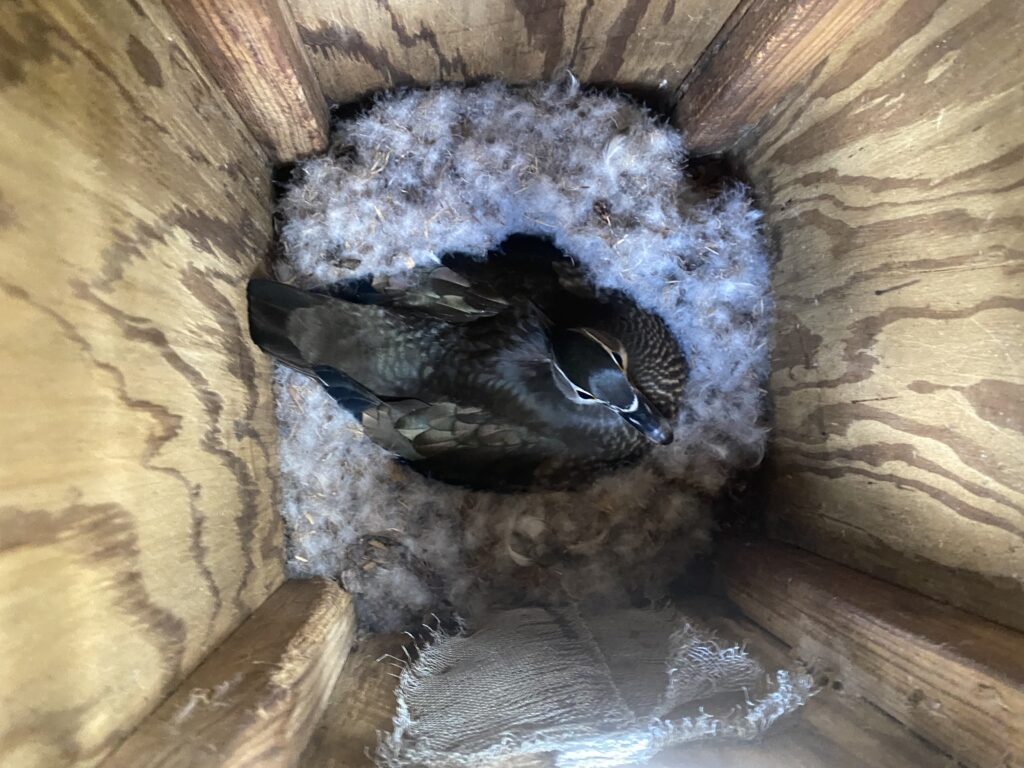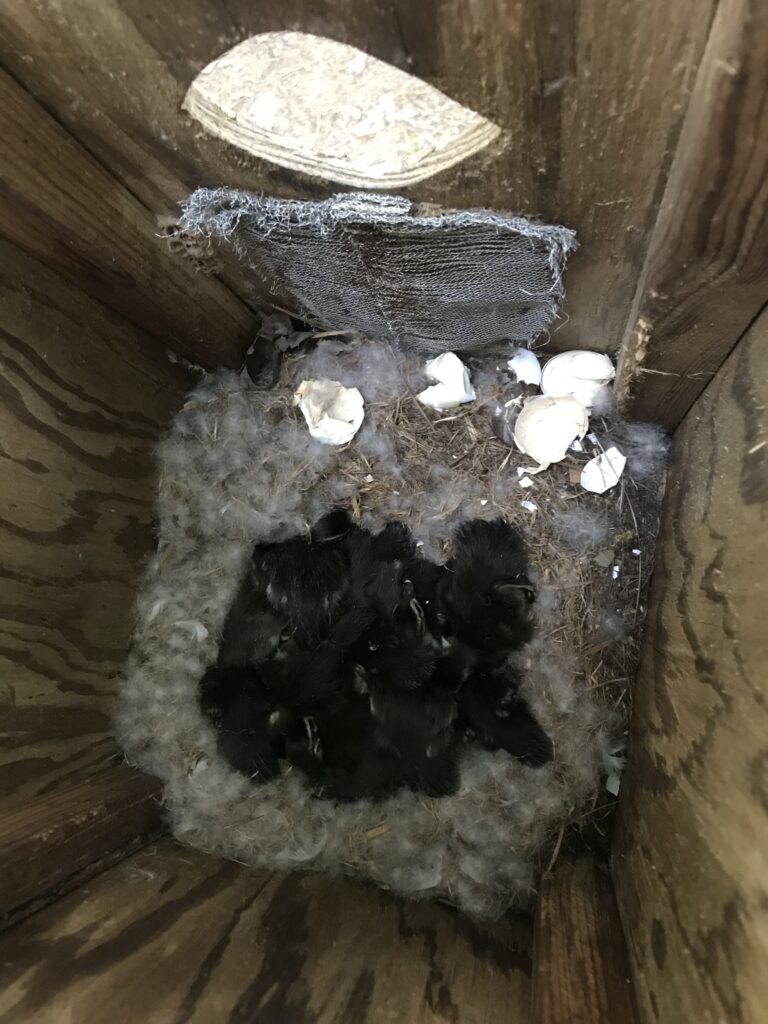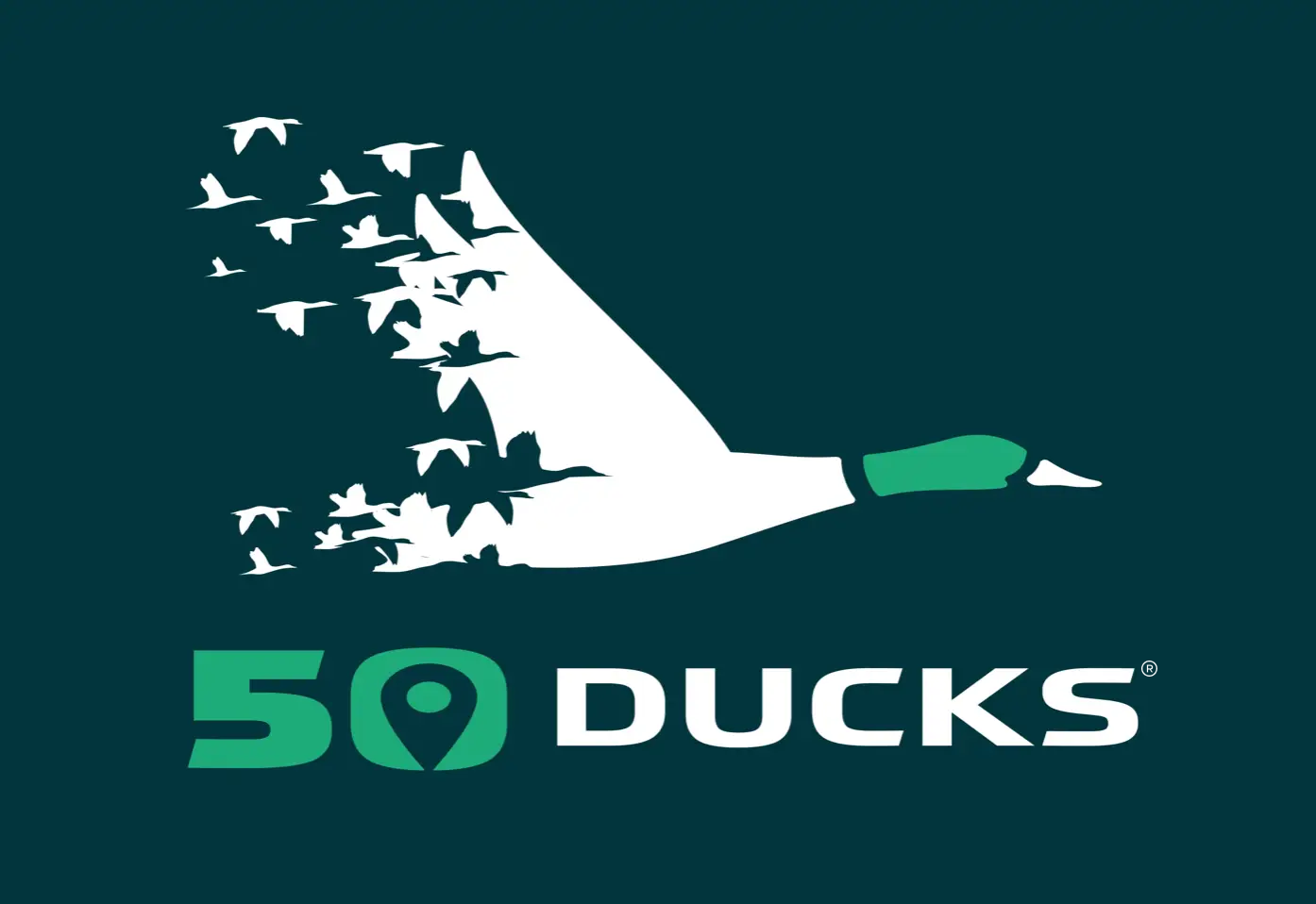
Ducks Don’t Put All Their Eggs in One Basket!
The saying “Don’t put all your eggs in one basket” takes on a literal meaning in the world of wood ducks. When we speak of “dump boxes,” we’re referring to intraspecific brood parasitism, a phenomenon where nests often contain eggs from multiple hens. But what drives this behavior?
The lack of available nesting sites might seem like an obvious reason, leading to hens either sharing the nest or vying for it. Yet, this behavior persists even in areas abundant with suitable nesting spots. Why? It seems that wood duck hens prefer to spread their eggs across multiple nests, a strategy that might enhance the survival of their offspring.
Curiously, there’s no evidence to suggest that wood ducks recognize their own chicks after they hatch. This dispersal tactic could be a way to ensure their genetic material survives across generations. Research, including studies from the Cornell Lab of Ornithology, indicates that more than 80% of wood duck nests in natural settings contain eggs from various hens.
Consider the nest box featured here: it holds 22 eggs, surpassing the typical capacity for a single hen. This suggests that several hens have contributed to this nest, embodying the strategy of not putting all their eggs in one basket.
It is unlikely that a nest can hatch more than 20 eggs from a single clutch; often, these dump boxes result in many eggs not hatching. If the dump box becomes too full, with recorded instances of over 60 eggs in a single box, it is unlikely that any eggs can be hatched from such a nest.
If you have wood duck boxes and notice an overabundance of eggs, the best thing to do is leave it alone. Only if the number of eggs reaches the range of 60 should you consider intervening. Under less extreme conditions, the hen will be able to hatch some of the chicks that, hopefully, will make it through adolescence.


